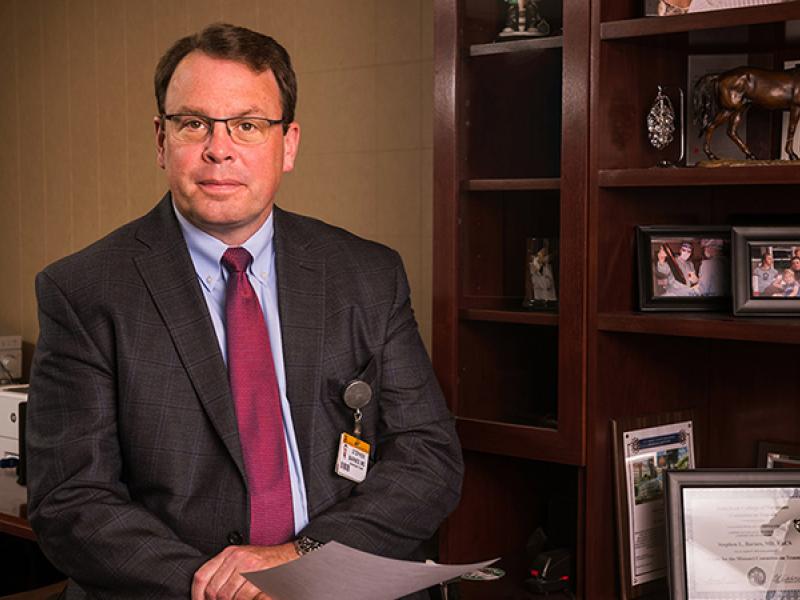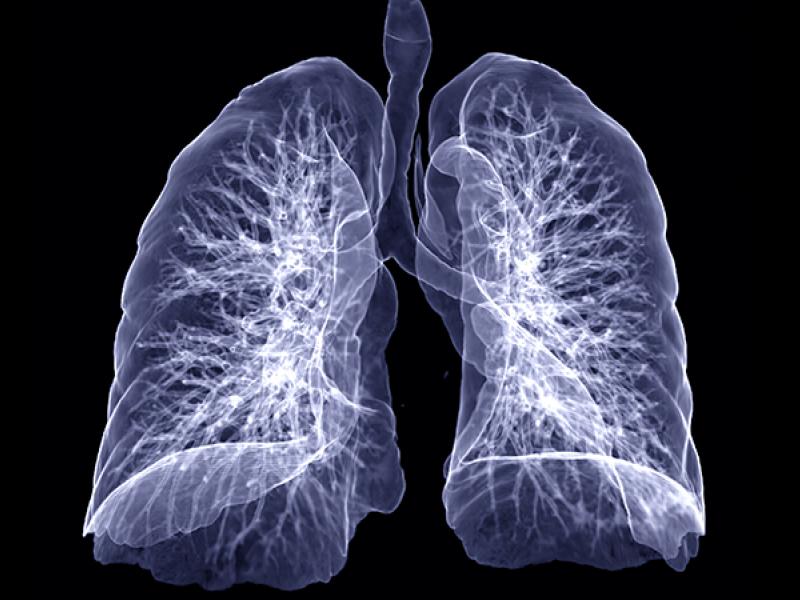The integrated plastic surgery resident will spend more than six months on the plastic surgery service during each of the first two years and nine months during the third year. Residents will log a total of nearly 23 months on plastic surgery prior to the fourth year of residency.
Throughout the six years of residency training, exposure to plastic surgery is nearly five years (four years and 44 weeks). Off-service rotations complement the necessary plastic surgeon core knowledge base and mainly take place during the first two years of residency. Off-service rotations consist of surgical critical care, acute care surgery (trauma), burn surgery, oncologic surgery, emergency medicine, anesthesiology, pediatric surgery, vascular surgery, cardiothoracic surgery, orthopaedic hand surgery, ENT head and neck surgery, and dermatology.
Residents' technical ability will be developed through an evolving curriculum of anatomic dissections and microsurgical training. As a graduate of our curriculum, you will have thorough knowledge of plastic surgery, provide the highest quality of care to plastic surgery patients and families, and have the technical skills and confidence to perform the wide variety of plastic and reconstructive procedures.
An example of our current schedule:
Block Diagram PGY-1 | |||||||||||||
|---|---|---|---|---|---|---|---|---|---|---|---|---|---|
| Block | 1 | 2 | 3 | 4 | 5 | 6 | 7 | 8 | 9 | 10 | 11 | 12 | 13 |
Rotation Name | Plastic Surgery | Burn | Pediatric Surgery | Plastic Surgery | Anesthesia | Vascular | Plastic Surgery | Plastic Surgery | Cardio-thoracic | Plastic Surgery | Emergency Medicine | Plastic Surgery | Acute Care Surgery |
Block Diagram PGY-2 | |||||||||||||
Rotation Name | Plastic Surgery | Plastic Surgery | Plastic Surgery | SICU | Pediatric Surgery | Surgical Oncology | Plastic Surgery | Plastic Surgery | Plastic Surgery | Vascular Surgery | Ortho | Surgical Oncology | Burn |
Block Diagram PGY-3 | |||||||||||||
Rotation | Plastic Surgery | Dermatology | Plastic Surgery | Ortho (Hand) | Plastic Surgery | Plastic Surgery | Plastic Surgery | Plastic Surgery | Head & Neck | Plastic Surgery | Plastic Surgery | Plastic Surgery | Plastic |
| Notes: The PGY 1-3 rotations are divided into 13 equal (four-week) clinical rotations. The plastic surgery rotations are service or attending based and include service at both University of Missouri Health Care and Harry S. Truman Memorial Veterans Hospital sites combined. | |||||||||||||
Block Diagram PGY-4 | ||||||||||||
|---|---|---|---|---|---|---|---|---|---|---|---|---|
| Block | 1 | 2 | 3 | 4 | 5 | 6 | 7 | 8 | 9 | 10 | 11 | 12 |
Rotation Name | Research | Research | Research | Ortho (Hand) | Plastic Surgery | Plastic Surgery | Plastic Surgery & Research | Plastic Surgery & Research | Plastic Surgery & Research | Plastic Surgery | Plastic Surgery | Plastic Surgery |
| Notes: The year’s rotations are divided into 12 one-month clinical rotations. There are three months devoted entirely to research. There are an additional three months that include research and clinical assignments. | ||||||||||||
Block Diagram PGY-5 | ||||||||||||
|---|---|---|---|---|---|---|---|---|---|---|---|---|
| Block | 1 | 2 | 3 | 4 | 5 | 6 | 7 | 8 | 9 | 10 | 11 | 12 |
Rotation Name | Plastic Surgery | Plastic Surgery | Plastic Surgery | Plastic Surgery | Plastic Surgery | Plastic Surgery | Plastic Surgery | Plastic Surgery | Ortho (Hand) | Plastic Surgery | Plastic Surgery | Plastic Surgery |
| Notes: The year’s rotations are divided into 12 one-month clinical rotations. There is an elective one‐month microsurgery rotation at MD Anderson in Texas in either Block 10 or Block 11. | ||||||||||||
Block Diagram PGY-6 | ||||||||||||
|---|---|---|---|---|---|---|---|---|---|---|---|---|
| Block | 1 | 2 | 3 | 4 | 5 | 6 | 7 | 8 | 9 | 10 | 11 | 12 |
Rotation Name | Plastic Surgery | Plastic Surgery | Plastic Surgery | Plastic Surgery | Plastic Surgery | Plastic Surgery | Plastic Surgery | Plastic & Aesthetic Surgery | Plastic & Aesthetic Surgery | Plastic Surgery | Plastic & Aesthetic Surgery | Plastic Surgery |
| Notes: The year’s rotations are divided into 12 one-month clinical rotations. There are three months given for an elective aesthetic rotation with Renaissance Plastic Surgery in Saint Peters, Missouri. This rotation is based on the aesthetic cases available throughout the year. This rotation’s participating sites also include St. Peters Ambulatory Surgery Center and Barnes-Jewish St Peters Hospital-Progress West Hospital. | ||||||||||||
In addition to extensive clinical experience, residents will participate in structured educational activities with faculty. Learning opportunities include:
- Weekly didactic sessions based on a two-year rotating curriculum and pre-operative conference where cases for the upcoming week are discussed with emphasis on procedural indications and operative plan development.
- Monthly didactic sessions include multidisciplinary hand conference, journal club, morbidity and mortality conference and resident case review.
Residents' technical ability will be developed through an evolving curriculum of anatomic dissections and microsurgical training.





